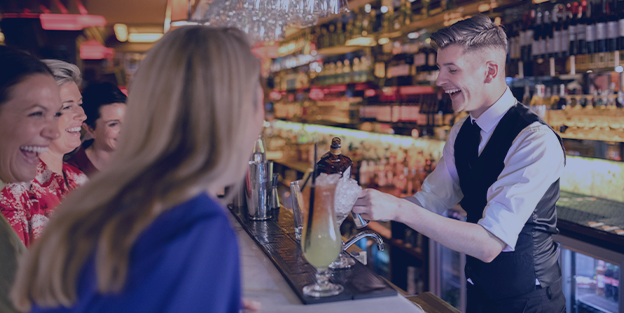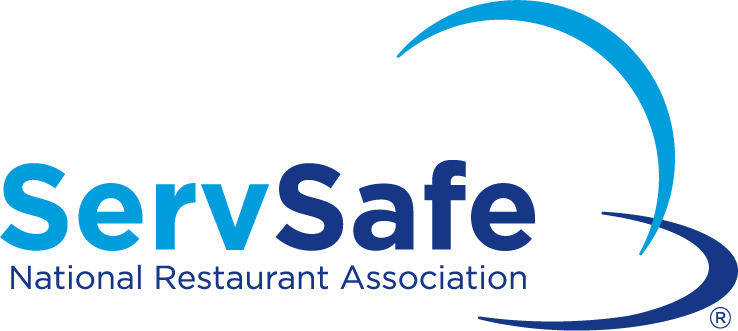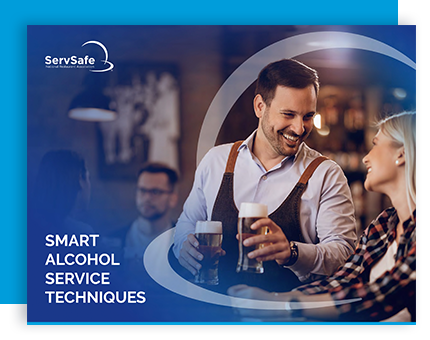BLOG
What Restaurants and Bars Should Know about Liquor Liability
Guest Blog by: John Cassetta, Business Growth Leader, Aon

Restaurants and bars legally hold some responsibility for how intoxicated customers behave.
While restaurant and bar owners might assume that their customers bear full responsibility for their alcohol-influenced actions after they have left the establishment, the reality is that the restaurant or bar could be held liable for any damages the customer caused. “Dram shop laws,” enforced in 43 states, hold a business owner liable if they or their staff serve a customer alcohol who is either a minor or already clearly intoxicated. If the intoxicated customer later causes an injury, property damage or even a death, the injured party could bring a claim against the restaurant or bar.
“If someone is over-served at your restaurant and gets into an accident, the authorities would probably come back and investigate the amount of alcohol that person was served…”
said Jay Popp, team lead of Franchise Solutions at Aon
These risks are important for restaurant owners to know during the holidays when alcohol consumption tends to increase. i.e., the winter holiday party circuit, New Year’s Eve, the Super Bowl Sunday, St. Patrick’s Day, and more. The Wednesday before Thanksgiving has become such a big party day that it now has its own name – “Drinksgiving.” Data from SR, a publication that covers full-service restaurants, shows that alcohol sales from beer, liquor and wine increases by 22 percent to 35 percent on New Year’s Eve as compared to a regular day.
A liquor liability insurance policy can help restaurants and bars better protect against these risks by covering property damage and injuries caused by intoxicated customers who were served alcohol at their business. “Liquor liability coverage can be a safeguard against what you might not know you need,” said John Cassetta, Aon’s senior growth leader, who specializes in insurance coverage for restaurants and franchises. “We can debate this all we want, but we live in a litigious society.”
Securing liquor liability coverage is becoming more critical now that states are considering lowering their DWI thresholds. Utah was the first state to lower its blood alcohol content threshold from the national standard of 0.08 percent to 0.05 percent. The state of New York has legislation pending to lower its DWI threshold to 0.05 percent. Washington and Hawaii are also reviewing legislation to lower the legal blood alcohol content level to 0.05 percent in their states.
Free Download
As an alcohol handler, it is your responsibility to prevent guests from becoming intoxicated. However, it isn’t always as easy as it sounds. In this eBook, we explore several techniques meant to prevent guests from becoming intoxicated so you can protect your customers, your community, and yourself.
Given the trend of “Drinksgiving,” it is likely that it would once again be “one of the biggest nights of the year for bars and restaurants..” This further emphasizes the need for restaurants and bars to consider liquor liability insurance to better protect their businesses.
It never hurts to have a routine check-up with your insurance advisor to discuss your restaurant operations, even if it means a small update to your current policy or opening a new policy. Industry professionals understand the economic challenges that restaurant owners are feeling now and will continue to feel in 2025. Still, it’s critical to understand “if you can’t afford the coverage, you surely can’t afford the claim or the lawsuit.”
This post is intended for general informational purposes and is not intended to provide medical or legal advice. The views expressed in this post are solely those of the writer and do not necessarily represent the opinions of the National Restaurant Association, National Restaurant Association Solutions, LLC, or their affiliates (collectively, the “Association”). The Association does not warrant or guarantee the accuracy or suitability of any information offered.
For more information and resources about responsible alcohol serving practices, sign up for our ServSafe Alcohol training program or connect with our team.

